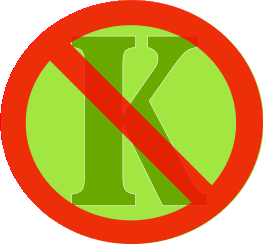
AYURVEDIC RECIPES
 Save Save
How to Make Poppy Seed Sleepy Time TeaSERVINGS: 1 PREP TIME: 10 MINUTES COOK TIME: 20 MINUTES MEAL: STYLE: EAT IN: FOR OCCASION: INGREDIENTS
PREPARATION OF THIS HEALTHY RECIPE1. Ground the poppy seeds in a coffee grinder or mash with a mortar and pestle.
How Does This Ayurvedic Recipe Improve Wellness?CLINICAL AYURVEDIC REVIEWRetreat into SleepPoppy Seed Sleepy Time Tea will gently lull you into a comforting dreamscape. Memories of insomnia drift into the shadows as you replenish your body and mind with this creamy navy-speckled tea. Imagine the comfort of snuggling beneath a soft blanket, pulling it up over your ears, and sinking into its peaceful warmth. This is the sensational calm offered by a steaming cup of Poppy Seed Sleepy Time Tea.Nutty, grounding, and sweet, each element of this tea is carefully chosen to create the coziness you crave in early fall. Shiny, blue-black poppy seeds and rich nutmeg are quietly intoxicating, bringing your turning mind to a pleasant rest. Ground-up poppy seeds create an oil-rich paste that is dark & earthy, a substance that embodies night's stillness and nurturing yin. Aromatic cardamom and heating honey moves soothing warmth throughout your tired body. When steeped in rich whole milk, this tea becomes the soothing restorative you've been dreaming of for ages. The next time you can't sleep, pull on your favorite slippers, shuffle to the kitchen, and make a cup of Poppy Seed Sleepy Time Tea. You'll be drifting off to dreamland in no time.
Poppy Seed Sleepy Time Tea is an effective remedy for occasional and chronic insomnia. Sleeplessness becomes an issue in times of high stress, anxiety, transition, and the windy fall. Inspire the calm stillness of a winter's night, comfortably wrapped in the deep blackness of a new moon, with this sleepy time tea. Poppy seeds contain small amounts of opium alkaloids, while opium is derived from the milky sap of unripe poppy flower pods. The seeds contain much less of the narcotic alkaloids but are calming none the less. At such small doses, poppy seeds are a safe sedative that actually strengthen and calm your nerves, and were historically recommended tonics for pregnant women, nursing women, and children. When combined with nutmeg, another mild sedative, Poppy Seed Sleepy Time Tea becomes the ideal sleep aid for sleepless nights. |
INCREASES Increases These Biocharacteristics (Gunas)
Functional Ayurveda helps you assess imbalances through 20 main biocharacteristics
(gunas).
Aggravating these characteristics weakens your body and causes imbalance.
By knowing which characteristics are habitually imbalanced in your body, you will be able to identify and correct imbalances before you get sick.
Every characteristic has an opposite which balances it (i.e. hot balances cold).
You restore balance by favoring diet and lifestyle choices that increase the opposite characteristic.
| COLD ABOUT COLD BIOCHARACTERISTICCold refers to anything that reduces body temperature, metabolism, and blood flow.OILY ABOUT OILY BIOCHARACTERISTICIn Ayurveda, oily refers to anything moistening. More specifically, oily refers to building substances that increases fat, or are themselves fatty. For example, sugar is Oily.HEAVY ABOUT HEAVY BIOCHARACTERISTICHeavy is identified by sedation, sluggishness, or increased weight. |
TASTES The 6 Tastes
Taste is used to sense the most basic properties and effects of food.
Each taste has a specific medicinal effect on your body.
Cravings for food with certain tastes indicate your body is craving specific medicinal results from food.
Taste is experienced on the tongue and represents your body's reaction to foods.
Sweet taste causes physical satisfaction and attraction whereas bitter taste causes discomfort and aversion.
Kapha should use less sweet taste while Vata and Pitta would benefit from using more sweet taste.
One of the first signs of illness is that your taste and appetite for food changes.
The six tastes are sweet, sour, salty, pungent, bitter, and astringent.
Do you crave foods with any of the tastes below?
| SWEET ABOUT SWEET BIOCHARACTERISTICSweet refers to anything builds tissue, including macronutrients such as carbohydrates, proteins and fats.ASTRINGENT ABOUT ASTRINGENT BIOCHARACTERISTICAstringency is characterized by constriction, drawing together, or drying. |
DOSHAS The Three Doshas / Body Types
According to the biocharacteristic theory of medicine,
people tend to get sick, over and over again, due to habitual causes and imbalances that are unique to the person.
Your body type summarizes this tendency, showing you the 'type' of conditions and imbalances that frequently challenge your health & wellness.
Using body type, you can also identify remedies likely to improve your strength and resiliency.
Your body type identifies physical and mental characteristics as well as your personal strengths and weaknesses.
The calculation of your body type is based on your medical history.
The 3 functional body types (doshas), are Catabolic (Vata), Metabolic (Pitta), and Anabolic (Kapha). Catabolic individuals tend to break down body mass into energy. They are easily stimulated, hyperactive, underweight and dry. Metabolic individuals tend to burn or use energy. They tend to be rosy-cheeked, easily irritated, focused, driven, and easily inflamed. Anabolic individuals tend to store energy as body mass. If they store too much energy, they could gain weight easily and have congestion. Anabolic people tend to be stable and grounded. | |
HAS THE FOLLOWING | Subtaste: BLANDBland means doesn't have much taste. In Chinese medicine, bland taste refers to afood without little macronutrients, such as cabbage, radish or bok choy.CRUNCHYMakes an audible noise when you eat them. Can provide fun texture variation.AROMATICHerbs or spices with volatile essential oils that present strong aromas. Aromatic oils shock, refresh and numb tissue, with the end result of relaxing, opening and clearing stagnant fluids in tissues.Moves Energy: INWARDInward moving substances promote introspection, self reflection, stillness, or slow the system down.DOWNWARDDownward-moving (Adho Gati Marga) substances move food downward in the GI tract, settle the nervous system, and relax muscles.Tissue (dhatu): REPRODUCTIVEReproductive tissue (Shukra/Artava Dhatu) includes male and female reproductive organs.FATFat tissue (Meda Dhatu) includes adipose tissue and sebum (skin oil).BONEBone tissue (Asthi Dhatu) includes the bones, hair, and nails.BLOOD-PLASMA-LYMPHPlasma (Rasa Dhatu) includes plasma, white blood cells, and lymph.MUSCLEMuscle tissue (Mamsa Dhatu) includes muscles and ligaments.NERVESMarrow tissue (Majja Dhatu) includes bone marrow and nervous tissue. |
HERBAL ACTIONS (see all) |
Medicinal Benefits, Uses & Herbal Actions of Poppy Seed Sleepy Time Tea  Experiences are Personal
Experiences vary according to the person and constitution. Individual results may vary.
The list of herbal-actions below has not be approved by the FDA and should not be used to treat a medical condition.APPETITE-SUPPRESSANTSuppresses hunger without causing weight gain.QUENCHES-THIRSTAn herb or substance that relieves thirst.CARMINATIVEStimulates the release of gas. Helpful for bloating or cramping abdominal pain. Propels food downward. Carminatives typically expel gas by relaxing the muscles of the intestines.RELIEVES-BURNINGHerbs that soothe a burn or reduce an internal burning sensation, such as aloe vera.CONSTIPATIVEAn herb that binds stools / stops diarrhea. When used in excess, these herbs and foods can cause constipation.MAKES-YOU-TIREDInduces drowsiness and promotes sound sleep.NERVE-RELAXANT-GROUNDINGEncourages feelings of stability and heaviness. Makes you feel settled, mentally relaxed. Mildly sedates the nervous system to ease stress. Can bring a spacey or anxious person back to earth. Reduces agitation, irritation, stress and racing thoughts.RELAXES-EYESEases tension in eye muscles, so the eyes feel less strained, often by supporting the liver.STIMULATES-BASE-OF-SKULLCreates a feeling of awareness or tension in the area at the base of the skull.ANALGESICPain reliever, reduces pain without eliminating sensation. Also known as anodyne.SEDATIVESedative herbs create a sense of calm in the mind and body by specifically calming or quieting the nervous system. Excellent for anxiety, stress and chronic pain.NERVINEBalances the nervous system. They can help with stress, memory, early alzheimer's, and even chronic pain. Often they are aromatic in nature.ANXIOLYTICHerbs that help people suffering from anxiety or panic. They promote a state of calm and often improve sleep. Most anxiolytic herbs are also nervines.BUILDS-STAMINAPromotes strength, endurance and resistance in the body. Rebuilds weak tissues after a time of depletion.STIMULATES-ENERGYThis category groups thyroid and adrenal stimulating herbs.SATISFIES-STOMACHProvides a sense of gratification and fullness in the stomach.NUTRITIVEAn herb that is strengthening and nourishing.TONICA tonic herb restores function through strengthening tissue. This can happen through a combination of nourishing the tissue, and invigorating tissue metabolism. The tonic should not be withering, as in caffeine.SOOTHINGCalms and alleviates irritation, discomfort or pain in a particular region.DIAPHORETICAn herb that induces sweating, often by dilating blood vessels close to the skin.DEMULCENTHerbs that coat or form a soothing film over a mucous membrane, relieving minor pain and inflammation of the membrane.SOOTHES-THROATSoothes throat discomfort, including from a sore or ticklish throat.ANTITUSSIVECough suppressant, particularly for dry coughs or a tickle in your throat.CALMS-HEARTAn herb that literally calms the heart. These herbs are helpful in the treatment of anxiety, sadness, depression, or other emotional imbalances in the heart. Related to the Chinese Herbal Category 'calms spirit.'STYPTICA herb that contracts tissue or blood vessels. Generally styptics are astringent. They are often used topically as a hemostatic to stop bleeding, or to reduce secretions.DIURETICHerbs that promote urine formation, thereby flushing the kidneys and urinary tract while eliminating any excess water retention. As diuretics reduce water retention, they are often used to reduce blood pressure.MUSCLE-RELAXANTHerbs that relax muscles. Helpful for chronic pain or tension as well as healing from physical trauma.RELIEVES-TENSIONAn herb that releases tightness, constriction, and rigidity in a muscle.ANTISPASMODICHerbs that reduce or inhibit muscle spasms or cramping, such as in asthma, menstruation, hear palpitations, migraine, or IBS.MUSCLE-TONICHerbs that strengthen and tone muscle tissue. Helpful for people recovering from long term illness and debility, or after a sprain.Fats, CALCIUMCalcium nourishes bones and muscles. A muscle cell is activated when calcium enters the cell. It relaxes when the calcium is secreted.COUMARINModerately toxic, vascular tonic, hypotensive, and anti-inflammatory.AROMATASE-INHIBITORBlocks estrogen synthesis by inhibiting conversion of progesterone and testosterone into estrogen. |
Foods with a Similar Nature to Poppy Seed Sleepy Time Tea
Poppy Seed has these Actions in Common
Antispasmodic, Appetite-suppressant, Constipative, Nerve-relaxant-grounding, Relieves-tension, Styptic, Antitussive, Builds-stamina, Makes-you-tired, Relaxes-eyes, Sedative, Analgesic, Anxiolytic, Calms-heart, Muscle-relaxant, Relieves-burning, Stimulates-base-of-skullHemp Seed has these Actions in Common
Builds-stamina, Muscle-relaxant, Relaxes-eyes, Tonic, Analgesic, Diuretic, Nerve-relaxant-grounding, Satisfies-stomach, Anxiolytic, Makes-you-tired, Nutritive, SedativeOats / Oatmeal has these Actions in Common
Satisfies-stomach, Appetite-suppressant, Demulcent, Nutritive, Sedative, Builds-stamina, Makes-you-tired, Relieves-burning, Anxiolytic, Carminative, NervineAmaranth has these Actions in Common
Nutritive, Satisfies-stomach, Demulcent, Muscle-tonic, Relaxes-eyes, Soothing, Diuretic, Nerve-relaxant-grounding, Relieves-tension, Appetite-suppressant, Muscle-relaxantPopped Amaranth has these Actions in Common
Nutritive, Satisfies-stomach, Demulcent, Muscle-tonic, Relaxes-eyes, Soothing, Diuretic, Nerve-relaxant-grounding, Relieves-tension, Appetite-suppressant, Muscle-relaxantPumpkin has these Actions in Common
Appetite-suppressant, Nerve-relaxant-grounding, Relieves-burning, Sedative, Makes-you-tired, Nutritive, Relieves-tension, Muscle-relaxant, Relaxes-eyes, Satisfies-stomachJackfruit has these Actions in Common
Demulcent, Nutritive, Satisfies-stomach, Muscle-tonic, Quenches-thirst, Soothing, Constipative, Nerve-relaxant-grounding, Relieves-burning, TonicSorghum Flour has these Actions in Common
Anxiolytic, Diuretic, Relaxes-eyes, Constipative, Nerve-relaxant-grounding, Satisfies-stomach, Antitussive, Demulcent, Nutritive, SedativeBuffalo Milk has these Actions in Common
Builds-stamina, Nerve-relaxant-grounding, Satisfies-stomach, Demulcent, Nutritive, Soothes-throat, Makes-you-tired, Quenches-thirst, TonicNutmeg has these Actions in Common
Analgesic, Carminative, Nervine, Antispasmodic, Constipative, Sedative, Anxiolytic, Makes-you-tired, StypticAlmonds has these Actions in Common
Muscle-tonic, Nutritive, Tonic, Builds-stamina, Nerve-relaxant-grounding, Satisfies-stomach, Muscle-relaxant, Nervine, Stimulates-energyHerb Supplements with a Similar Nature to Poppy Seed Sleepy Time Tea
Gokshura has these Actions in Common
Antispasmodic, Relieves-tension, Antitussive, Sedative, Demulcent, Soothing, Diuretic, Tonic, Muscle-relaxant, Nerve-relaxant-grounding, Nervine, Analgesic, NutritiveAshwagandha has these Actions in Common
Muscle-tonic, Nerve-relaxant-grounding, Analgesic, Nervine, Antispasmodic, Nutritive, Anxiolytic, Relieves-tension, Builds-stamina, Sedative, Diuretic, Tonic, Muscle-relaxantOats, Fresh Milky Seed has these Actions in Common
Nervine, Nutritive, Relieves-burning, Antispasmodic, Relieves-tension, Anxiolytic, Sedative, Muscle-relaxant, Soothing, Muscle-tonic, Tonic, Nerve-relaxant-groundingCalifornia Poppy has these Actions in Common
Nerve-relaxant-grounding, Nervine, Relaxes-eyes, Analgesic, Relieves-tension, Antispasmodic, Sedative, Anxiolytic, Styptic, Calms-heart, Muscle-relaxantEleuthero Ginseng has these Actions in Common
Analgesic, Relieves-tension, Antispasmodic, Stimulates-energy, Anxiolytic, Tonic, Builds-stamina, Muscle-relaxant, Muscle-tonic, Nerve-relaxant-grounding, NervineSelf Massage has these Actions in Common
Nerve-relaxant-grounding, Nervine, Nutritive, Relaxes-eyes, Relieves-tension, Anxiolytic, Sedative, Calms-heart, Soothing, Muscle-relaxantKava Kava has these Actions in Common
Makes-you-tired, Muscle-relaxant, Nerve-relaxant-grounding, Nervine, Analgesic, Relieves-tension, Antispasmodic, Sedative, Anxiolytic, DiureticShatavari has these Actions in Common
Calms-heart, Soothes-throat, Demulcent, Tonic, Muscle-tonic, Nerve-relaxant-grounding, Nutritive, Relaxes-eyes, Relieves-burning, Relieves-tensionVidari has these Actions in Common
Diuretic, Muscle-tonic, Nerve-relaxant-grounding, Nutritive, Soothes-throat, Calms-heart, Soothing, Constipative, Tonic, DemulcentMotherwort has these Actions in Common
Calms-heart, Diaphoretic, Diuretic, Muscle-relaxant, Nerve-relaxant-grounding, Analgesic, Nervine, Antispasmodic, Relieves-tension, AnxiolyticHoly Basil Leaf (Tulsi) has these Actions in Common
Antispasmodic, Sedative, Anxiolytic, Stimulates-energy, Constipative, Diaphoretic, Diuretic, Muscle-relaxant, Nerve-relaxant-grounding, Nervine
Joyful Belly is a recognized school of biocharacteristics medicine.
Eat Well for Life With Ayurveda: Balance Your Dosha
View Other Healthy Recipes for Autumn-Winter
This recipe is recommended for Autumn-Winter. Check out these other Autumn-Winter recipes here.

About the Author
John Immel, the founder of Joyful Belly, teaches people how to have a healthy diet and lifestyle with Ayurveda biocharacteristics. His approach to Ayurveda is clinical, yet exudes an ease which many find enjoyable and insightful. John also directs Joyful Belly's School of Ayurveda, offering professional clinical training in Ayurveda for over 15 years.John's interest in Ayurveda and specialization in digestive tract pathology was inspired by a complex digestive disorder acquired from years of international travel, as well as public service work in South Asia. John's commitment to the detailed study of digestive disorders reflects his zeal to get down to the roots of the problem. His hope and belief in the capacity of each & every client to improve their quality of life is nothing short of a personal passion. John's creativity in the kitchen and delight in cooking for others comes from his family oriented upbringing. In addition to his certification in Ayurveda, John holds a bachelor's degree in mathematics from Harvard University.
John enjoys sharing Ayurveda within the context of his Catholic roots, and finds Ayurveda gives him an opportunity to participate in the healing mission of the Church. Jesus expressed God's love by feeding and healing the sick. That kindness is the fundamental ministry of Ayurveda as well. Outside of work, John enjoys spending time with his wife and 7 kids, and pursuing his love of theology, philosophy, and language.
Comments & Impressions of 'Poppy Seed Sleepy Time Tea'
Do you like 'poppy seed sleepy time tea'? Why or why not? What makes it unique? Is there something else you'd like to know about 'poppy seed sleepy time tea'?



 (5.00 out of 5 stars) 2 ratings, 466 likes
(5.00 out of 5 stars) 2 ratings, 466 likes



 Sign in to review this recipe
Sign in to review this recipe
Join Joyful Belly.
Want our top Ayurvedic recipes and health tips?Subscribe to our free newsletter!

 Print
Print
 On MeWe
On MeWe On Pinterest
On Pinterest On Facebook
On Facebook On Twitter
On Twitter On WhatsApp
On WhatsApp On Email
On Email





 Soothing Sleep Aid
Soothing Sleep Aid





